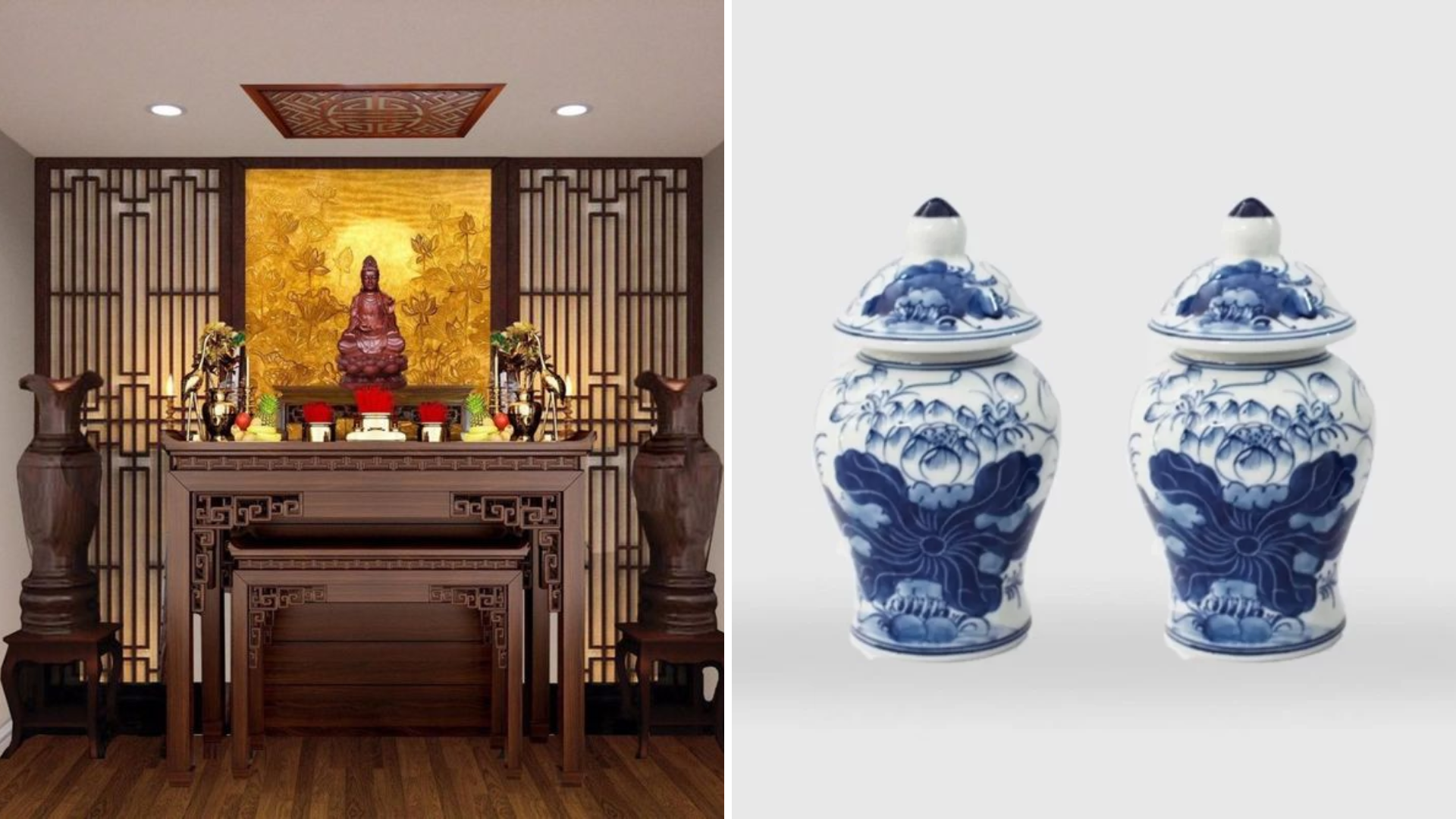Rice and salt are two important items in the worship area to perform spiritual rituals. Do you know what the jar of rice and salt placed on the altar means?

Worshiping gods and ancestors is one of the beautiful cultural traditions of the Vietnamese people, a manifestation of the morality of remembering the source of water when drinking water. The altar area is solemnly decorated with incense bowls, incense burners, lamps, flower vases, fruit trays... and a jar of rice and salt. However, not everyone knows what the jar of rice and salt on the altar symbolizes and what its meaning is.
Jars of rice and salt are usually small in size, made of porcelain or ceramic. They are often placed neatly on the ancestral altar or the altar of the God of Wealth or the God of the Land, symbolizing abundance, happiness and helping to ward off evil spirits. With the meaning of combining the material and the spiritual, jars of rice and salt on the altar are considered an inseparable pair.
Rice is the staple food in Vietnamese life, symbolizing life and prosperity. When placing a jar of rice on the altar, the homeowner wishes to pray for the family to have a warm and full life.
Salt, with its characteristic salty taste, represents solidarity and resilience. In folk beliefs, salt has the ability to ward off evil spirits and bring peace to the family.
Placing a jar of rice and salt on the altar helps to show the gratitude of descendants for the birth and upbringing of their ancestors. This is also a way to pray for ancestors to bless their descendants with a favorable life and successful work.
According to feng shui, salt has antiseptic properties and the ability to ward off negative energy. Placing a jar of salt on the altar is believed to help the family always feel peaceful and avoid bad luck.
The combination of rice (representing material abundance) and salt (representing spiritual abundance) brings about a sense of balance and harmony. This is an important element in the Vietnamese spiritual concept, helping family life to be stable and complete.
First, the homeowner should prepare jars made of ceramic or porcelain with lids, small in size, suitable for the altar. Choose clean rice and salt, free of impurities, and pour them into each jar, then place two jars of rice and salt in the right or left corner of the altar, depending on the space and arrangement of the homeowner.
During the process of cleaning the worship space, the homeowner can use a clean soft cloth to wipe the rice and salt jars and other objects on the altar to keep them free of dust and dirt. In addition, it is necessary to regularly check whether the rice and salt in the jars have spoiled or not so that they can be replaced promptly.
Homeowners should replace rice with salt on important occasions such as Tet, full moon days or family ceremonies to refresh and attract positive energy and good luck.
To maximize the feng shui meaning of the rice and salt jar, homeowners should note: